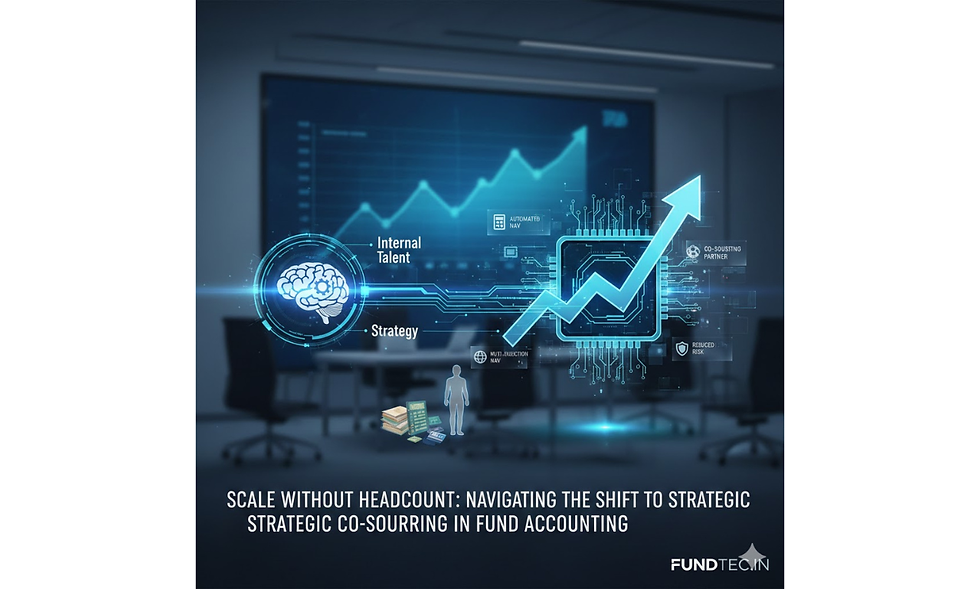SPAC - Special Purpose Acquisition Company
- yash52
- Dec 25, 2023
- 3 min read
Updated: Jul 7, 2025
A global buzz around going public.

What Is a Special Purpose Acquisition Company (SPAC)?
A special purpose acquisition company (SPAC) is a company with no commercial operations that is formed strictly to raise capital through an initial public offering (IPO) for the purpose of acquiring an existing company. Sometimes a SPAC is called a “blank-check company” because it doesn’t have any actual operations. Instead, the company is created for the purpose of taking a private company public.
How it Works:
A SPAC is created as a shell company that looks for a business opportunity to acquire or merge with an existing private company.
Initially SPAC sponsors are allowed to put money into the blank-check company and receive favorable terms for their shares or other consideration.
SPACs seek underwriters and institutional investors before offering shares to the public.
Once it lists on the Nasdaq or New York Stock Exchange, investors can buy into the new company, just like any other IPO.
Proceeds from the IPO are kept in Interest bearing trust account.
Eventually, the SPAC identifies a private business that looks to be a good acquisition target. If approved, the business is acquired and continues operations. The SPAC shares continue to be available on the market but now they are publicly associated with a business.
If a SPAC investor doesn’t want to be a shareholder in the new, combined company, they can redeem their shares.
Usually a SPAC has up to two years to find a suitable arrangement for a business acquisition. If the time frame isn’t met, the trust account is liquidated and beneficiaries can receive their portion of the funds back.
More about SPAC:
Prospectus and reports
Whether you are investing in a SPAC by participating in its IPO or by purchasing its securities on the open market following an IPO, you should carefully read the SPAC’s IPO prospectus as well as its periodic and current reports filed with the SEC pursuant to its ongoing reporting obligations. It is important to understand the terms of your investment.
Trust account
SPACs generally invest the proceeds in relatively safe, interest-bearing instruments, but you should carefully review the specific terms of an offering as there is no rule requiring that the proceeds only be invested in those types of instruments.
Trading price
In the IPO, SPACs are typically priced at a nominal $10 per unit. Unlike a traditional IPO of an operating company, the SPAC IPO price is not based on a valuation of an existing business. When the units, common stock and warrants (more below) begin trading, their market prices may fluctuate, and these fluctuations may bear little relationship to the ultimate economic success of the SPAC.
Period to consummate the initial business combination
A SPAC will typically provide for a two-year period to identify and complete an initial business combination transaction. However, some SPACs have opted for shorter periods, such as 18 months. The SPAC’s governing instruments may permit it to extend that time period. If a SPAC seeks to extend the time period, it may be required to seek shareholder approval. If a SPAC lists its securities on an exchange, it is required to complete an initial business combination within three years of its IPO.
Latest Industry Updates:

Kredivo id is set to go public via $2.5 bln Spac Merger
The owner of Indonesian buy now, pay later platform Kredivo is set to go public in a $2.5 billion merger with a special purpose acquisition company sponsored by Victory Park Capital. (Source)
Egyptian ride-sharing company Swvl plans to go public in a $1.5B SPAC merger
Cairo and Dubai-based ride-sharing company Swvl plans to go public in a merger with special purpose acquisition company Queen’s Gambit Growth Capital,. The deal will be valued at roughly $1.5 billion.
Its services, mainly bus-hailing, enables users to make intra-state journeys by booking seats on buses running a fixed route. Swvl offerings have expanded beyond bus-hailing services. Now, the company offers inter-city rides, car ride-sharing, and corporate services across the 10 cities it operates in across Africa and the Middle East. (Source)
Vacasa, a vacation rental co. with Boise roots, aims to go public in $4.5 billion deal The deal, which would come via a merger with a special purpose acquisition company called TPG Pace Solutions, would value Vacasa at about $4.5 billion. (Source)
Key Takeaways:
1. A special purpose acquisition company is formed to raise money through an initial public offering to buy another company.
2. At the time of their IPOs, SPACs have no existing business operations or even stated targets for acquisition.
3. Investors in SPACs can range from well-known private equity funds to the general public.
4.SPACs have two years to complete an acquisition or they must return their funds to investors.





Comments